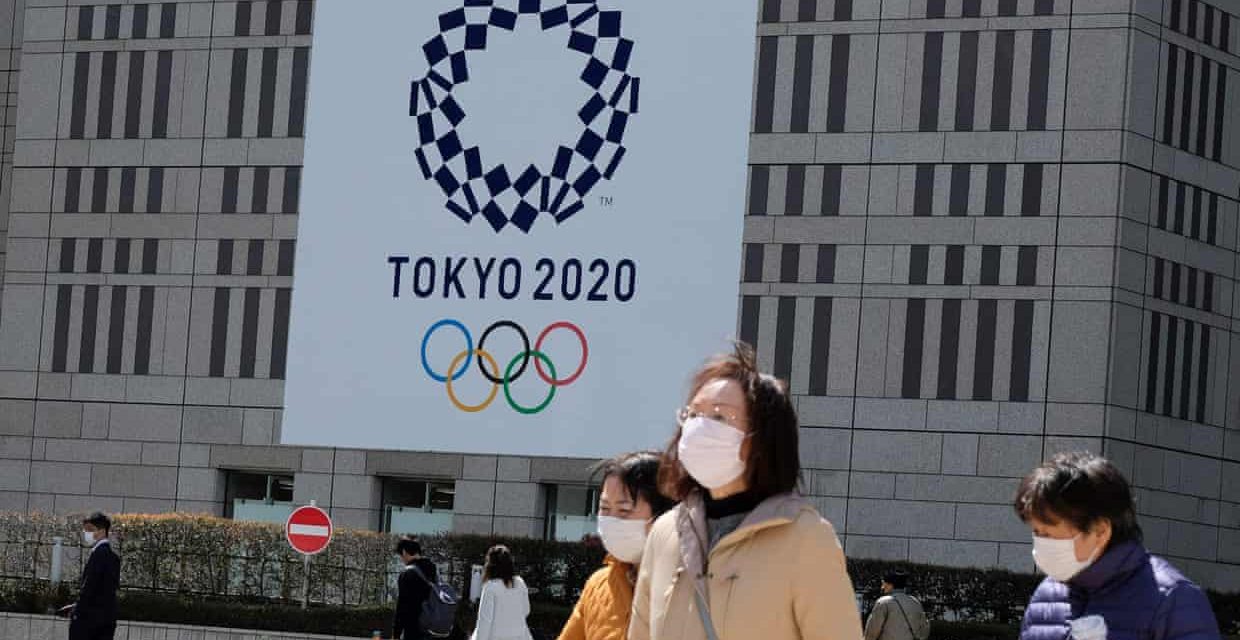Tokyo Olympics to start in July 2021
Next year’s Tokyo Olympics will now officially open on 23 July 2021 – 364 days later than planned – in order to give organisers the time needed to prepare after the disruption caused by the Covid-19 pandemic. The decision was confirmed by the International Olympic Committee following a conference call between its president, Thomas Bach, and the international sports federations on Monday. The IOC said rescheduling the games to next July would help other major events. “These new dates give the health authorities and all involved in the organisation of the Games the maximum time to deal with the constantly changing landscape and the disruption caused by the Covid-19 pandemic,” the statement read. The Olympic Games and Paralympic Games will continue to be called the “Olympic and Paralympic Games Tokyo 2020” even when they are held next year, and the Olympic flame will stay in Japan “as a beacon of hope to the world during these troubled times”. (The Guardian)
Stricter rules to be enforced during second phase of MCO
As part of a tightening of measures under the movement control order (MCO), beginning tomorrow, there will be shorter operating hours for businesses that are allowed to open. And the government has warned that there will be more of such stricter rules. This comes as the authorities move in to disinfect the entire country. Defence Minister Datuk Seri Ismail Sabri Yaakob said 828 people were arrested on Sunday at roadblocks and during police patrols. He also said that the second phase of the MCO, which is from tomorrow until April 14, would see additional restrictions, including shorter hours for businesses and services. For delivery services, Ismail said the government encouraged contactless delivery, where items were left outside the customer’s house and collected without any contact with the deliverer. (The Star Online)
Property sales could more than halve during MCO period
The property market may see a sharp fall of over 50% in sales during the current movement control order (MCO) period. The Malaysian Institute of Estate Agents (MIEA) president Lim Boon Ping said the sale and purchase (S&P) agreements for property transactions cannot be carried out during the MCO period as Malaysian laws require physical signatures witnessed by lawyers. “Digital signature in property transactions is not admissible evidence in court. Lim said when there is no S&P agreement, there will be no sale, estimating that the MCO will definitely impact property sales by more than 50%. However, Lim said the negative impact from the MCO is unable to be ascertained now as it takes months for the property market to react to the latest development. Lim highlighted that buyers have more bargaining power amid the Covid-19 pandemic and MCO as more property owners are willing to negotiate on prices. This is because some property owners’ income has been hit and they may have difficulty paying the instalments. (The Sun Daily)
MACC receives report on alleged power abuse in ECRL
The Malaysian Anti-Corruption Commission (MACC) has received a complaint regarding abuse of power in connection with the East Coast Rail Link (ECRL) project. Without disclosing the involvement of any individual, MACC chief commissioner Datuk Seri Azam Baki said they would study the complaint before carrying out further investigations. Meanwhile, a source told Bernama TV that the complainant, among others, asked MACC to investigate the alleged inflated cost of the ECRL project, which it said should be RM30 billion instead of RM44 billion, since certain things were reduced, among them the cancellation of five stations along the Gombak-Klang route. (Malay Mail)
Hong Kong luxury apartment rents slashed to attract tenants
The spreading coronavirus has crunched rents for luxury homes in Hong Kong as wealthy individuals hesitate to sign leases amid the gloomy economic outlook. Landlords have cut their asking prices by as much as 20% since mid-March in a high-end area of West Kowloon, according to Arthur Chui, a senior sales manager at Midland Realty. Far fewer international companies are looking for accommodation for their staff from overseas, he said. That used to be another big source of renters in the district. The one-two punch of anti-government protests that started last year and now Covid-19 has pushed Hong Kong’s economy into recession. The benchmark Hang Seng Index sank to the lowest level since 2016 earlier this month while the city’s unemployment rate is the highest in almost a decade. Apart from concerns about the deteriorating economy, social distancing practices over the past few months have contributed to the drop in leasing activities. (NST Online)





